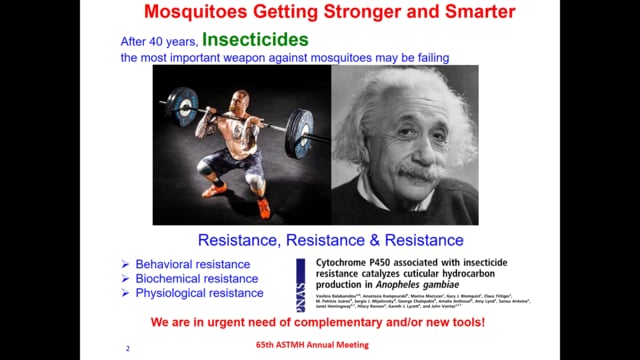ASTMH 2016, Etienne M. Bilgo: “Transgenic insect killing fungus better kills insecticide-resistant, malaria-vector mosquitoes”
Collaborator(s): Research Institute of Health Sciences (IRSS), Burkina Faso
Published: 14/11/2016
In collaboration with ASTMH, Image Audiovisuals, and session presenters, MESA brings you this webcast from the 65th ASTMH annual meeting in Atlanta, November 2016.
Title: “Transgenic insect killing fungus better kills insecticide-resistant, malaria-vector mosquitoes”
Speaker: Etienne M. Bilgo, IRSS/Centre Muraz, Bobo Dioulasso, Burkina Faso
Session information: Scientific Session 12: “Mosquitoes: Operational Control”
Monday, 14 November, 8am – 9:45 am, Marriott – Room A703/704
Abstract:
The continued success of malaria control efforts requires the development, study and implementation of new technologies. Here we present a significant advancement in the development of insect killing fungi as a means of mosquito biocontrol. We have combined the natural abilities of Metarhizium spp. fungi and the field of arthropod-derived toxins to engineer a highly specific and potent pathogen of mosquitoes. Our studies show significant improvements in the rate of mosquito mortality due to the transgene in both insecticide-susceptible and wild-caught, insecticide-resistant populations. We further discovered the enhanced ability of the transgenic fungus to decrease a critical aspect of mosquito behavior for the spread of malaria (blood feeding behavior). In only 5 days, the transgenic fungus not only decreases disease transmission in mosquitoes faster than the wild-type fungus, but it decreases blood feeding to a greater degree. This research characterizes our transgenic entomopathogen as an effective and rapid mosquito control technology, which can be readily applied to mitigate risks involved with existing insecticide-based control methods.
THEMES: Insecticide Resistance | Vector Control



